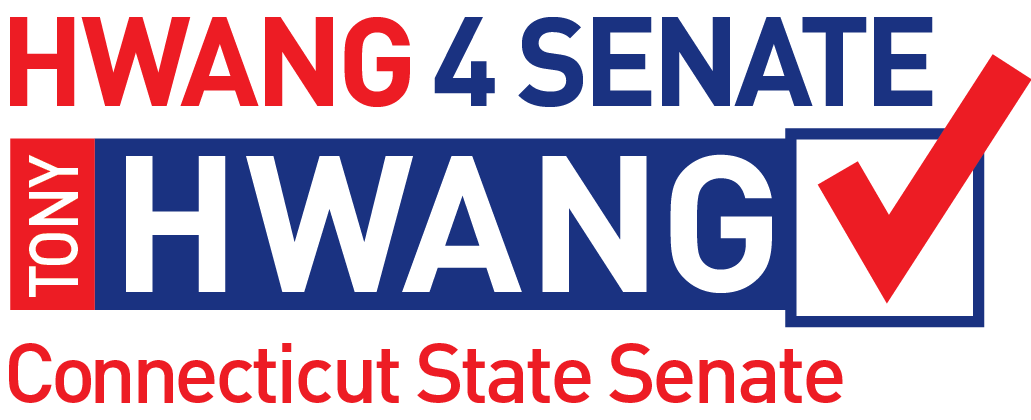When you received your electric bill this month, there is no doubt you experienced the “sticker shock” of a significant rate increase. Energy bills are soaring across Connecticut, and it’s no wonder that this issue has become the top affordability and fairness concern of residents. The frustration over sky-high electric rates and impersonal customer service is palpable. If you’ve noticed a surprise, steep increase in your bill recently, there’s a clear reason: it is the way our electric bills are structured.
In Connecticut, there are four elements to your bill that you should be aware of: generation, transmission, local delivery, and public benefits. Generation, transmission, and local delivery costs on your bill are fairly self-explanatory, they are the costs to buy and deliver energy to households. Most residents understand the existing high cost of three of the four elements. However, the fourth part of your bill, “public benefits,” is at the center of the current energy cost controversy. This part of your bill has nothing to do with the generation or transmission of energy nor the delivery of it to your household or business. This portion funds various state government programs for energy efficiency, energy assistance, and more. It is also the part of your bill where the near-monopoly utility companies can recover losses. Most people who saw an increase in their bill this month saw it in the public benefits portion of their bill. Here are a few reasons for that.
Let’s start with the moratorium on power shut-offs during the COVID pandemic. When the pandemic first began in 2020, Gov. Ned Lamont issued, through executive order, a moratorium on shutting off power to non-paying customers. This made sense as it would be unwise and cruel to shut off power to residents who were told to stay home from work due to lockdown restrictions. While other states ended these protections in 2021 as the pandemic waned, Connecticut kept the moratorium in place until May 2024. This meant that electric companies could not shut off non-paying energy users for three years. As a result, the “public benefits” charge on your bill has surged, compensating for just under $200 million in unpaid bills. All Connecticut ratepayers will be paying for these well-intentioned public policies, that went on for far too long, until next year without recourse or relief.
In addition to this, the state of Connecticut directed our Electric Distribution Companies (EDCs) — UI & Eversource — to enter into power purchase agreements for certain sources of renewable and low/zero carbon energy. Depending on the type of energy that is being purchased, the price could be significantly higher than the wholesale market. Any added costs resulting from this added more dollars to your bill. In the most extreme cases, EDCs could be buying energy from some renewable generators at two to three times the market rate! It is the tradeoff toward efforts to reduce air pollution and greenhouse gas emissions impacting climate change.
In 2020, the General Assembly passed PA 20-5, which is commonly known as the “Take Back Our Grid Act.” This legislation was designed to hold our utilities accountable when they fail to perform in storm response. Last year, I supported the passage of bipartisan legislation preventing EDCs from using “pass-through” charges to ratepayers for trade association dues, donations to political advocacy, nonprofits, public relations expenses, lawyers hired to argue for rate increases, and lobbying expenses. This legislation also broadened factors that PURA can consider when deciding what a reasonable rate of return is. This includes the burden of the company’s costs on residential ratepayers, measured as a percentage of household income, under the current and proposed rates.
So, what else can be done to address the current energy cost issues?
First, we must study how to overhaul the “public benefits” portion of your bill. This charge has nothing to do with the actual transmission or generation of energy. It is essentially a hidden tax. A demand for accountability and transparency must come from all branches of state government. We must urgently study how to transition from the “pass-through” funding of these programs, and instead legislatively commit these costs to the standard state budgetary process, rather than hiding our unfunded mandates by passing them onto your utility bill.
Second, we must also ensure that PURA has all the resources it needs. Legislation in 2019 increased the total number of Commissioners on PURA from three to five. Up until recently, there have continued to be only three commissioners. Governor Lamont just last month nominated a fourth commissioner. However, one of the commissioners is retiring at the end of the year. Does this mean we will be back to three? I applaud the governor for his recent reappointment of PURA Chair Marissa Gillett. This was the right decision, but he must ensure that all five positions are filled.
Third, we should propose to carefully vet and evaluate all power purchase agreements for renewable energy. A possible cap of 150% of the market rate would prevent exorbitant costs from being passed on to consumers while still supporting the transition to clean energy.
Fourth, PURA should consider all aspects of EDC business operational costs and profits in determining rate setting. The cost of generation and transmission costs such as natural gas, renewable energy, and local delivery are necessary cost recovery items for EDCs. But we must consider their outside and affiliate business profits and infrastructure financing charges as a part of rate-setting decision-making. Cost “pass-throughs” such as the public benefit, and other costs of doing business such as political lobbying and finance interest charges must be scrutinized and reconsidered.
Our EDCs enjoy unfettered market control and produce consistent profits for Wall Street investors and enormous compensation for senior executives against the backs of struggling Connecticut ratepayers. It is crucial for elected leaders and regulators to work together to ensure a balance of interests between consumer market fairness and the financial ability of EDCs to provide safe, clean, reliable, and affordable utility service and infrastructure.
The post State Sen. Tony Hwang (opinion): What We Can Do to Lower Energy Costs in CT appeared first on Connecticut Senate Republicans.

